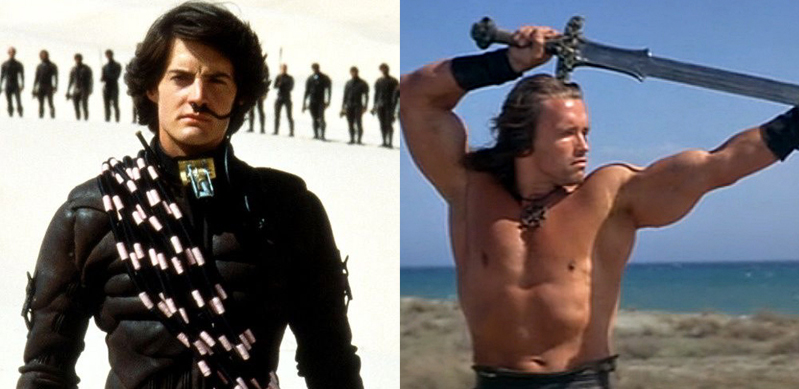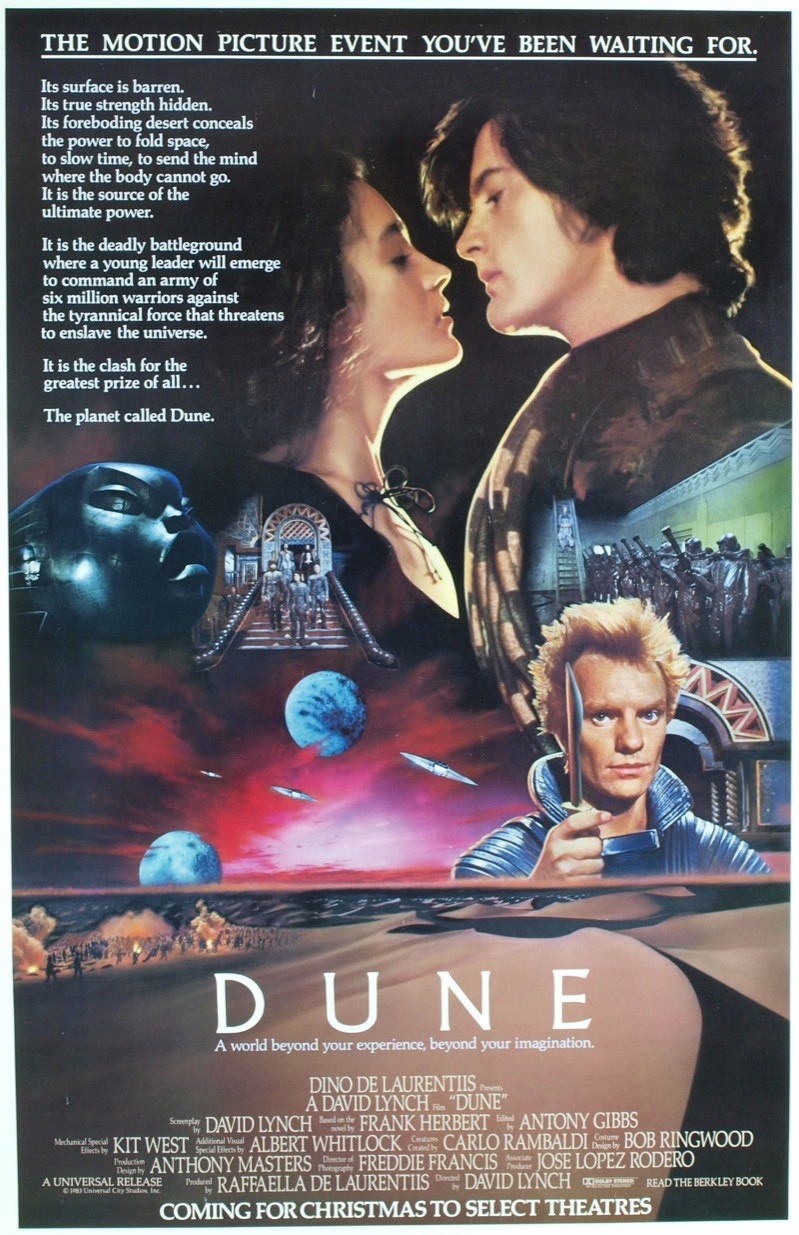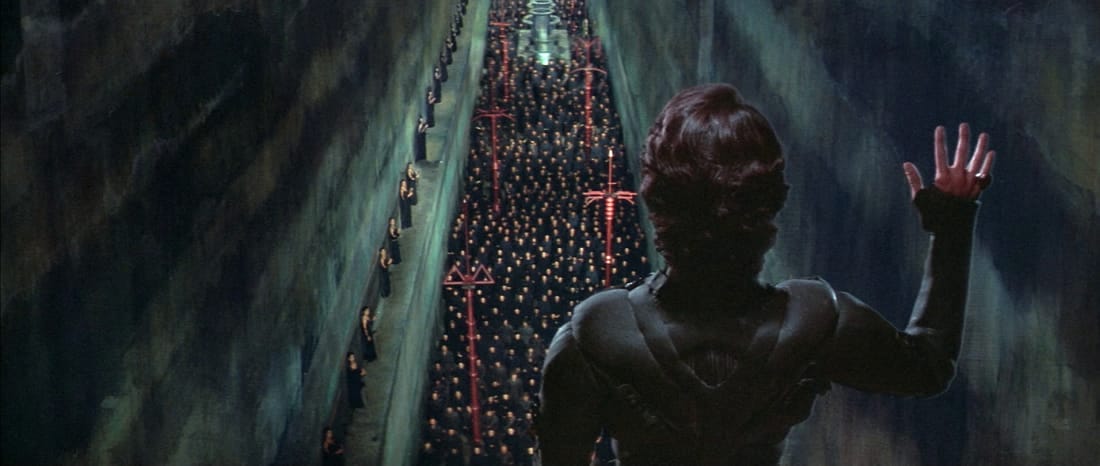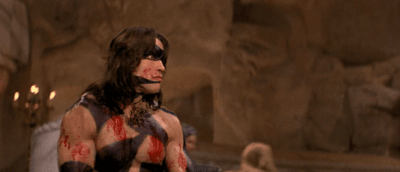This week at TFE we've celebrated the centennial of one of cinema’s most prolific and legendary producers, Dino De Laurentiis... with look backs at his Italian breakthrough, his expensive taste in 60s epics, an American reinvention, and the hubris of King Kong.
Here's Chris Feil to wrap things up...

With the exception of Hannibal Lecter, history tends to overlook Dino De Laurentiis genre contributions. In fact when Manhunter (1986) would arrive, Hannibal was somewhat the closing chapter to what Dino would bring in the late 70s and 80s. Instead the interim brought its share of delightful schlock, namely giving David Lynch enduring battle wounds and introducing the world to Arnold Schwarzenegger. I’m talking about the earnest disasterpieces Dune and Conan the Barbarian.
Think of this as the De Laurentiis dessert of our week-long series...

While on the surface it might be easy to leap to schadenfreude with both of these films, but I would say both offer a grand sense of scale and spectacle. For De Laurentiis, they reveal the producer’s savvy eye towards broad global appeal, and well before that what considered essential to such genre sagas. We watch Dune and Conan today and see unmitigated disaster, but that has never once kept them out of the cultural consciousness or ceased their endless run on cable television. Call them junk, but they are unpretentious and have captivated audiences for in perpetuity.
... Okay, maybe Dune is a tiny bit pretentious.
But we can just chalk that up to a long-windedness endemic to distilling its beloved brick of a novel into a succinct sci-fi tentpole. David Lynch was brought onto the film by the De Laurentiis family as they were about to lose the rights after courting Ridley Scott. And the result is the stuff of legend, a sometimes interminable mishegos of characters and plot. Look, it’s no fun to beat a dead horse or lament the woes of a film that Lynch refuses to talk about.
But aside from its (overly) earnest attempt at cramming its intergalactic geography and endless utterances of “the spice!”, you get a sometimes gobsmackingly designed film around it. Certainly inspired in large part by Jodorowsky’s concepts when the project was in his hands, the design elements transcend the film’s reputation for something that is often astounding to look at. For production value, and yes even vision, it stands among the top of De Laurentiis’ legacy.
 Dune production art
Dune production art Ron Cobb was the production designer on Conan (1982)
Ron Cobb was the production designer on Conan (1982)
Meanwhile Conan the Barbarian is like a softcore artifact of male id gone cinematically wild. This one is perhaps harder to defend in its schlocky missteps, but its utter lunacy is part of its lingering charm. Conan has giant snake puppets, plentiful swordplay, and James Earl Jones in microbangs. It’s a movie where Arnold Schwarzenegger does the sex so good that it makes his cave woman partner sprout fangs, forcing Arnold to throw her into a fire before she becomes a laughing meteor and shoots off into the woods, never to be heard from again.
Perhaps elements of Conan seem more low-fi than Dune, but the film was ultimately a much larger financial success. It’s pleasures are simple: archetypal leather-clad machismo battling evil in primitive times, vengeance, and campy violence. What makes it most dated is its sexual politics, filled with boobs for its purely male audience. And yet the film feels otherwise unassuming and quaint by today’s standards of more grim masculinity. If nothing else, Dino deserves credit for launching a major star of the decade despite his categorical inability to act.

When considering his legacy, it’s important to remember Dino De Laurentiis’ influence as a fantasy filmmaker, how he launched big scale visions that could make audiences happy over the decades - no matter how silly they may seem.